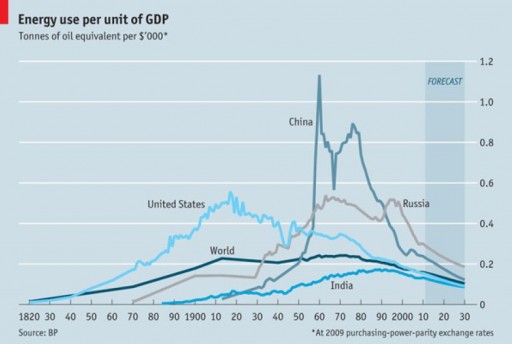Civilization faces ‘perfect storm of ecological and social problems’
February 22, 2012 | Source: The Guardian
Celebrated scientists and development thinkers today warn that civilization is faced with a perfect storm of ecological and social problems driven by overpopulation, overconsumption, and environmentally malign technologies.
In the face of an “absolutely unprecedented emergency,” say the 18 past winners of the Blue Planet prize — the unofficial Nobel for the environment — society has “no choice but to take dramatic action to avert a collapse of civilisation. Either we will change our ways and build an entirely new kind of global society, or they will be changed for us.”
The stark assessment of the current global outlook was published Feb. 21, on the 40th anniversary of the foundation of the UN environment program (Unep). The paper, which was commissioned by Unep, will feed into the Rio +20 earth summit conference in June.
The group warns against over-reliance on markets but instead urges politicians to listen and learn from how poor communities all over the world see the problems of energy, water, food and livelihoods as interdependent and integrated as part of a living ecosystem.
“The long-term answer is not a centralized system but a demystified and decentralized system where the management, control and ownership of the technology lie in the hands of the communities themselves and not dependent on paper-qualified professionals from outside the villages,” they say.
The paper urges governments to:
- Replace GDP as a measure of wealth with metrics for natural, built, human and social capital and how they intersect.
- Eliminate subsidies in sectors such as energy, transport and agriculture that create environmental and social costs, which currently go unpaid.
- Tackle overconsumption in the rich world, and address population pressure by empowering women, improving education and making contraception accessible to all.
- Transform decision-making processes to empower marginalized groups, and integrate economic, social and environmental policies instead of having them compete.
- Conserve and value biodiversity and ecosystem services, and create markets for them that can form the basis of green economies.
- Invest in knowledge through research and training.
